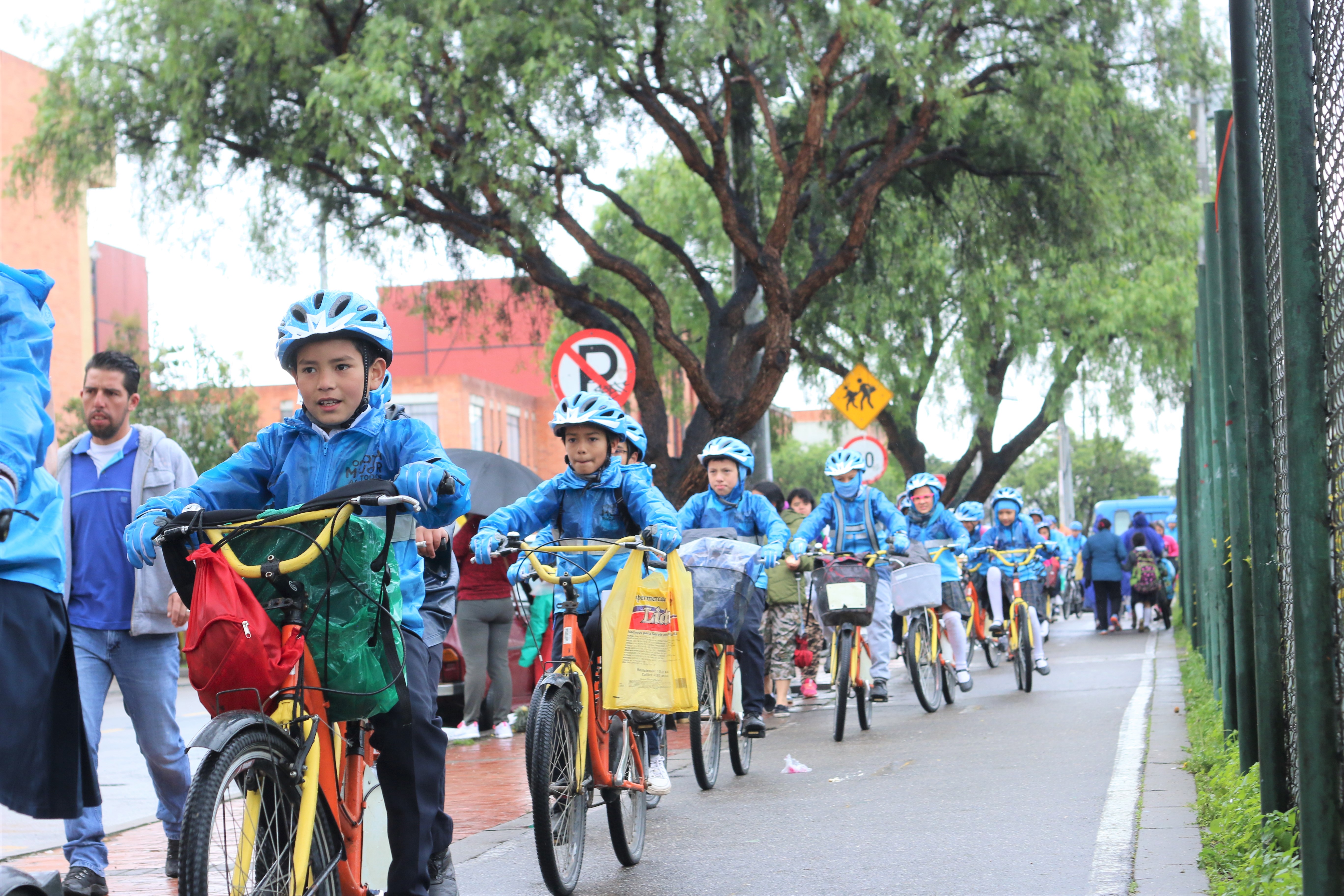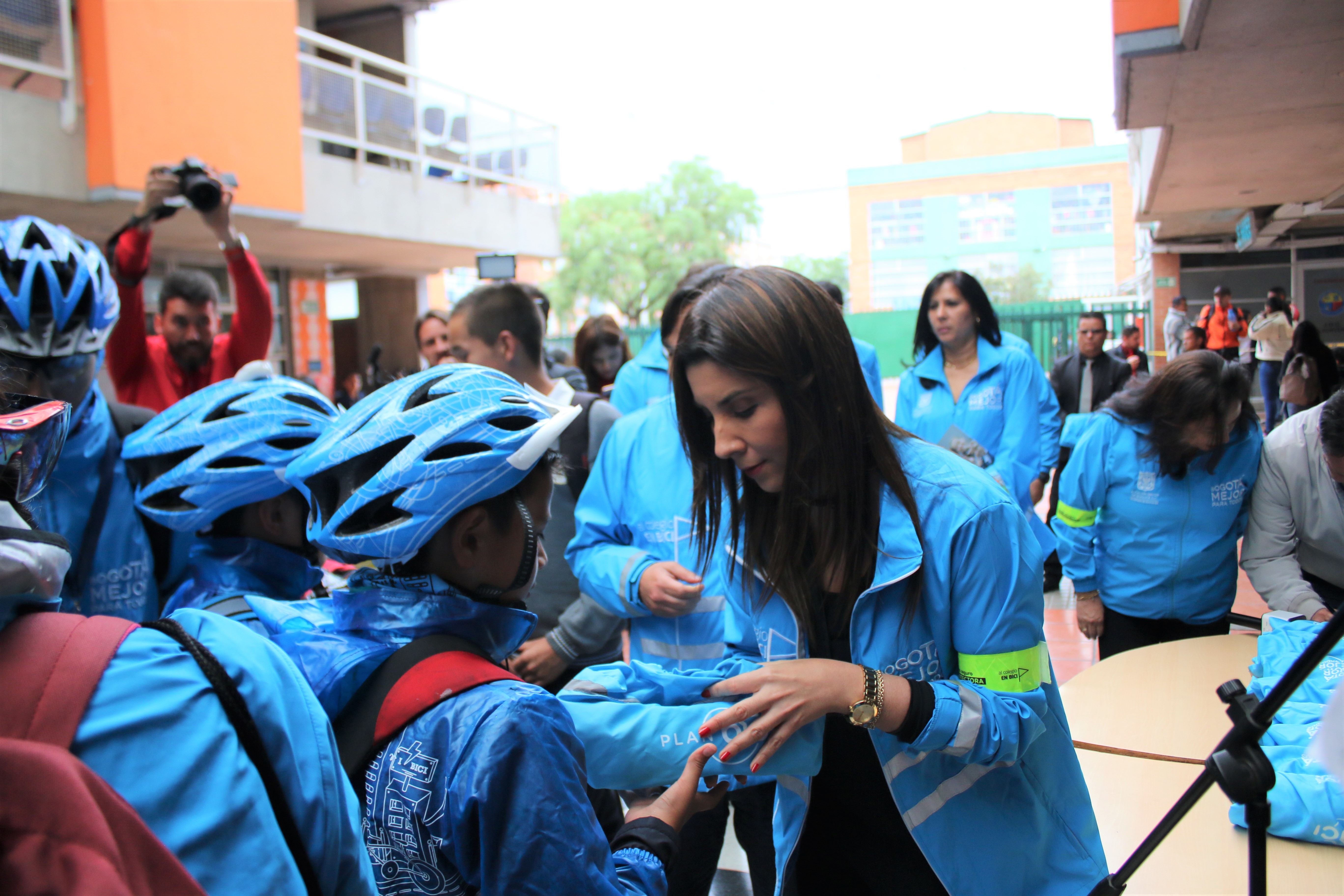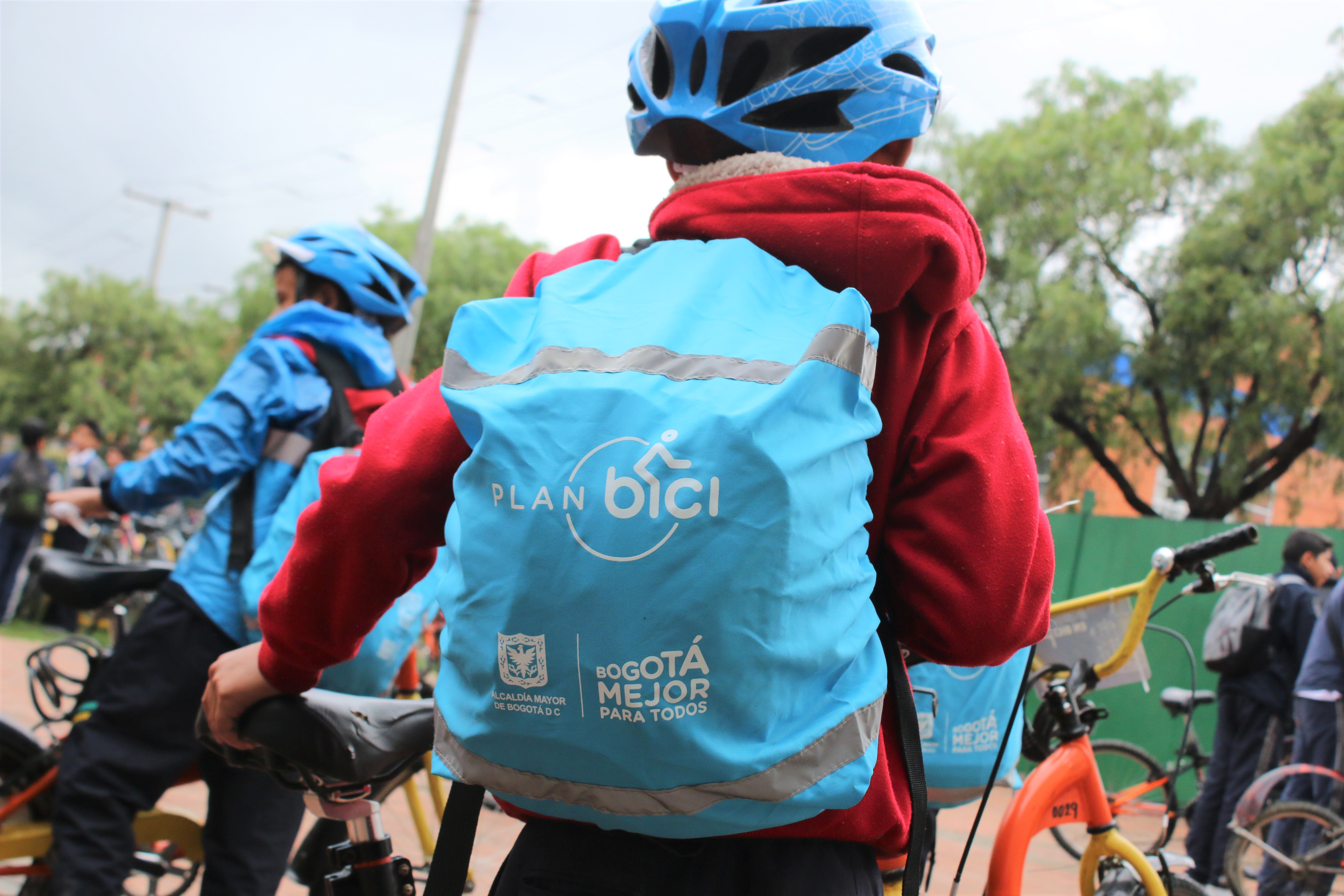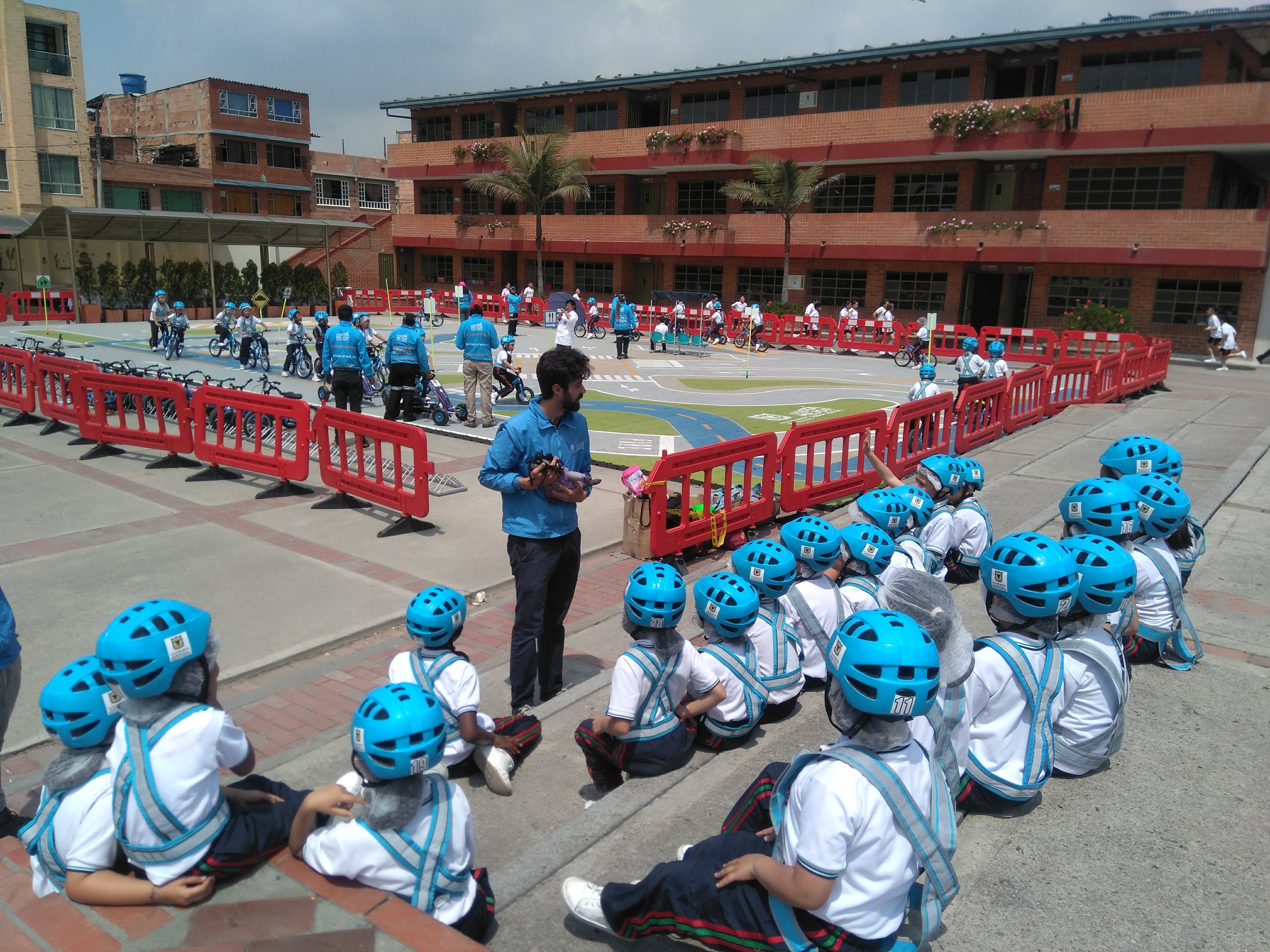 - © Bogotá Programa De Buenas Práctica
- © Bogotá Programa De Buenas Práctica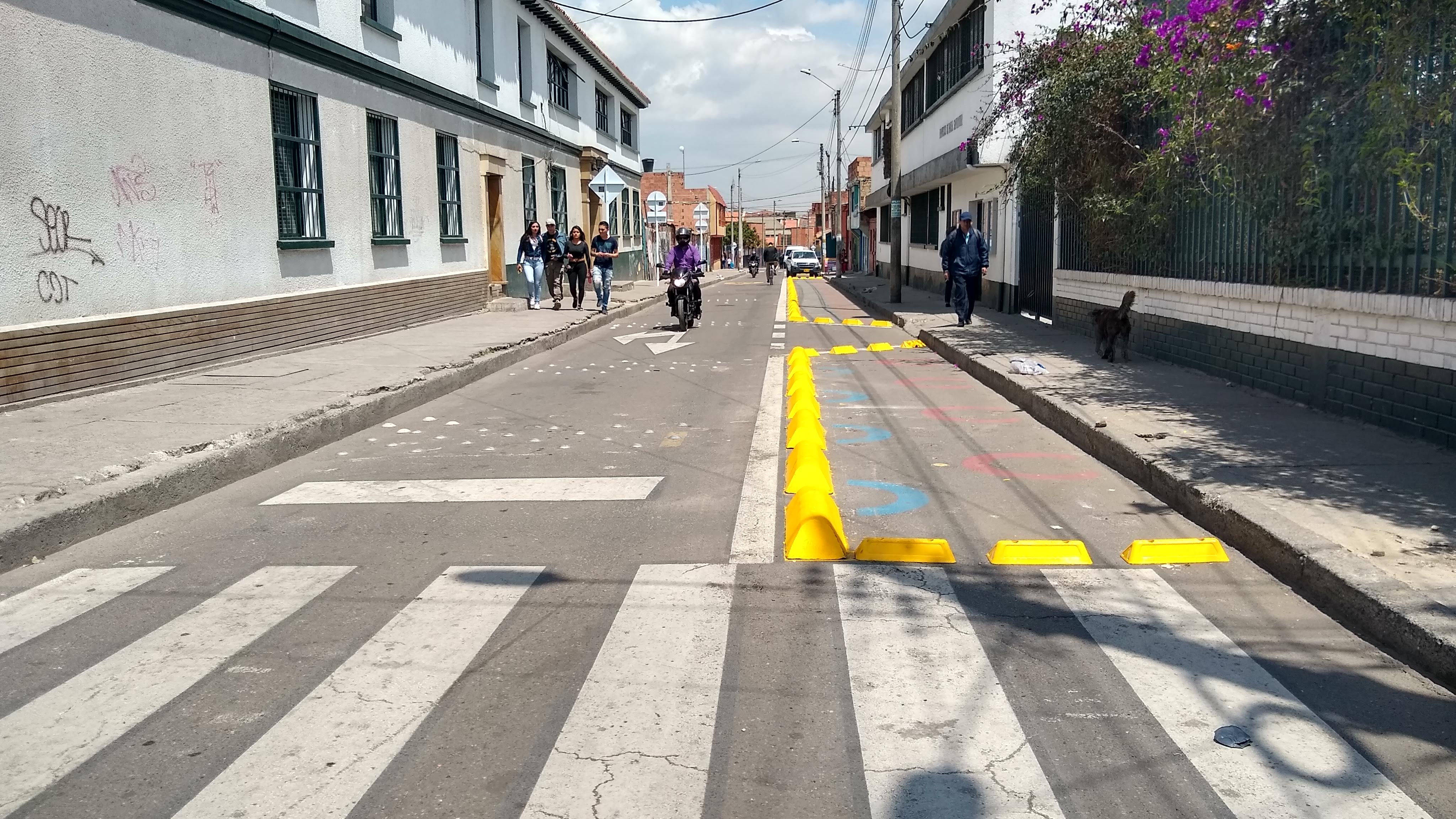 - © Bogotá Programa De Buenas Práctica
- © Bogotá Programa De Buenas Práctica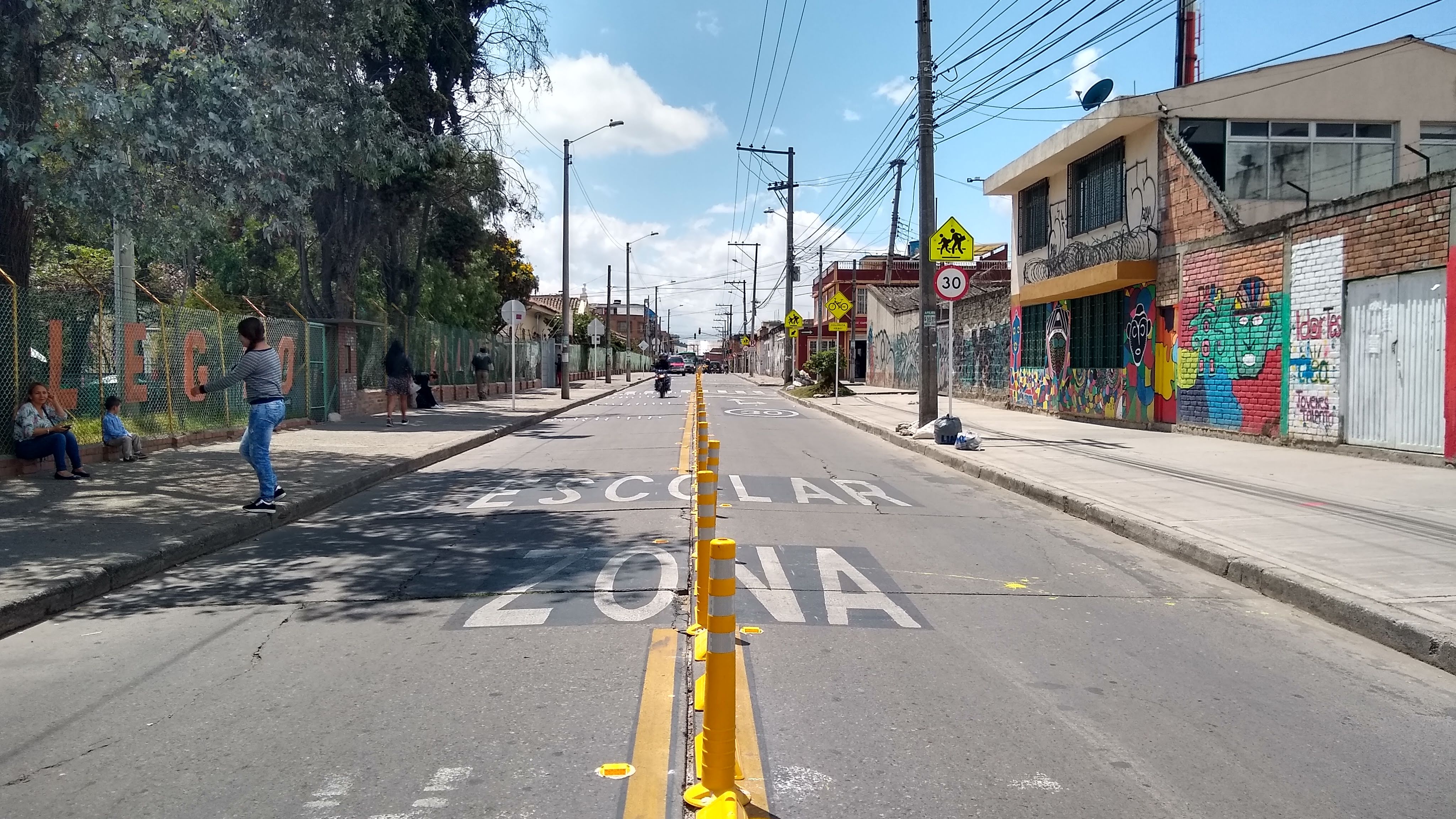 - © Bogotá Programa De Buenas Práctica
- © Bogotá Programa De Buenas Práctica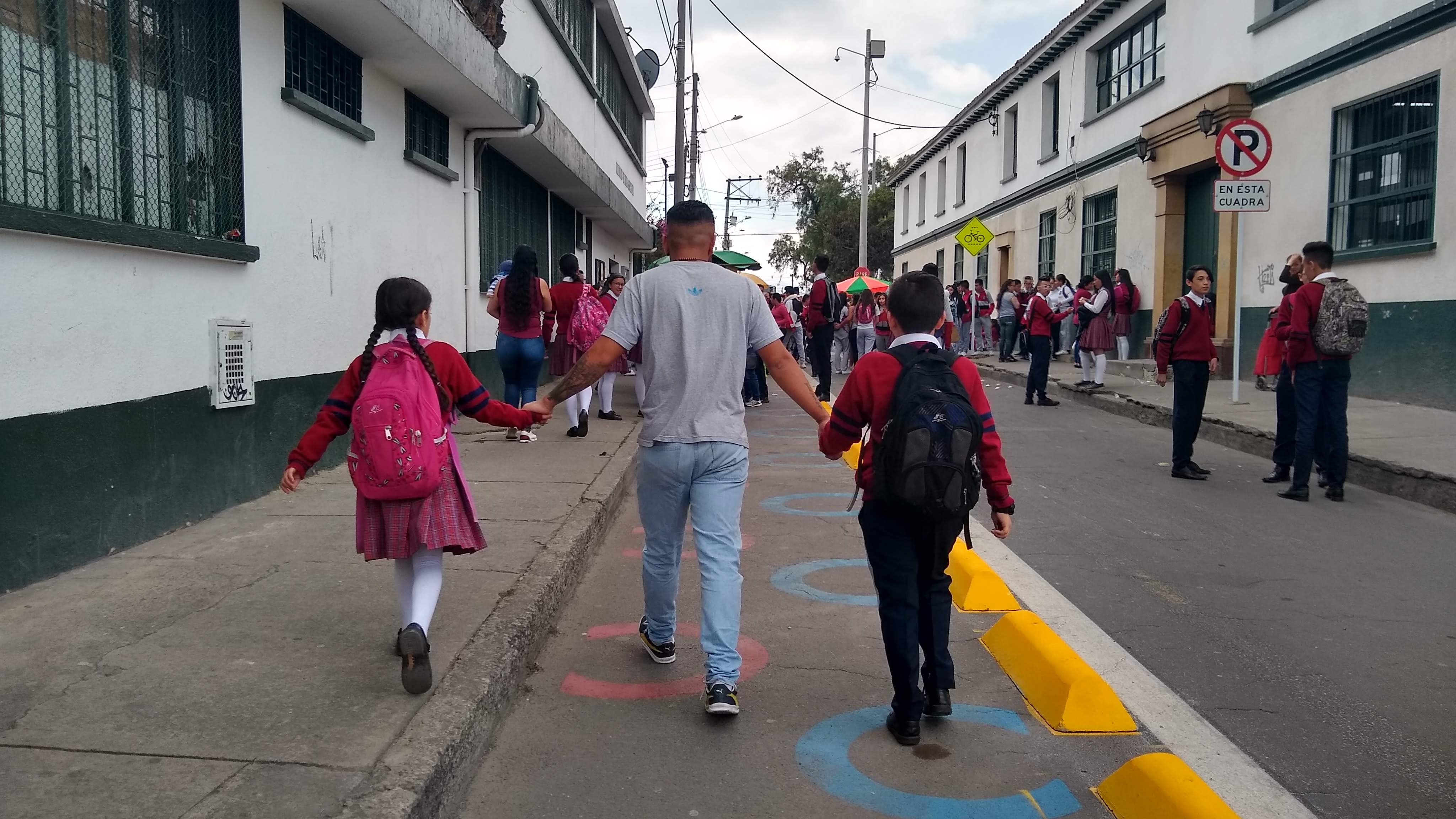 - © Bogotá Programa De Buenas Práctica
- © Bogotá Programa De Buenas Práctica- - © Bogotá Programa De Buenas Práctica
- - © Bogotá Programa De Buenas Práctica
- - © Bogotá Programa De Buenas Práctica
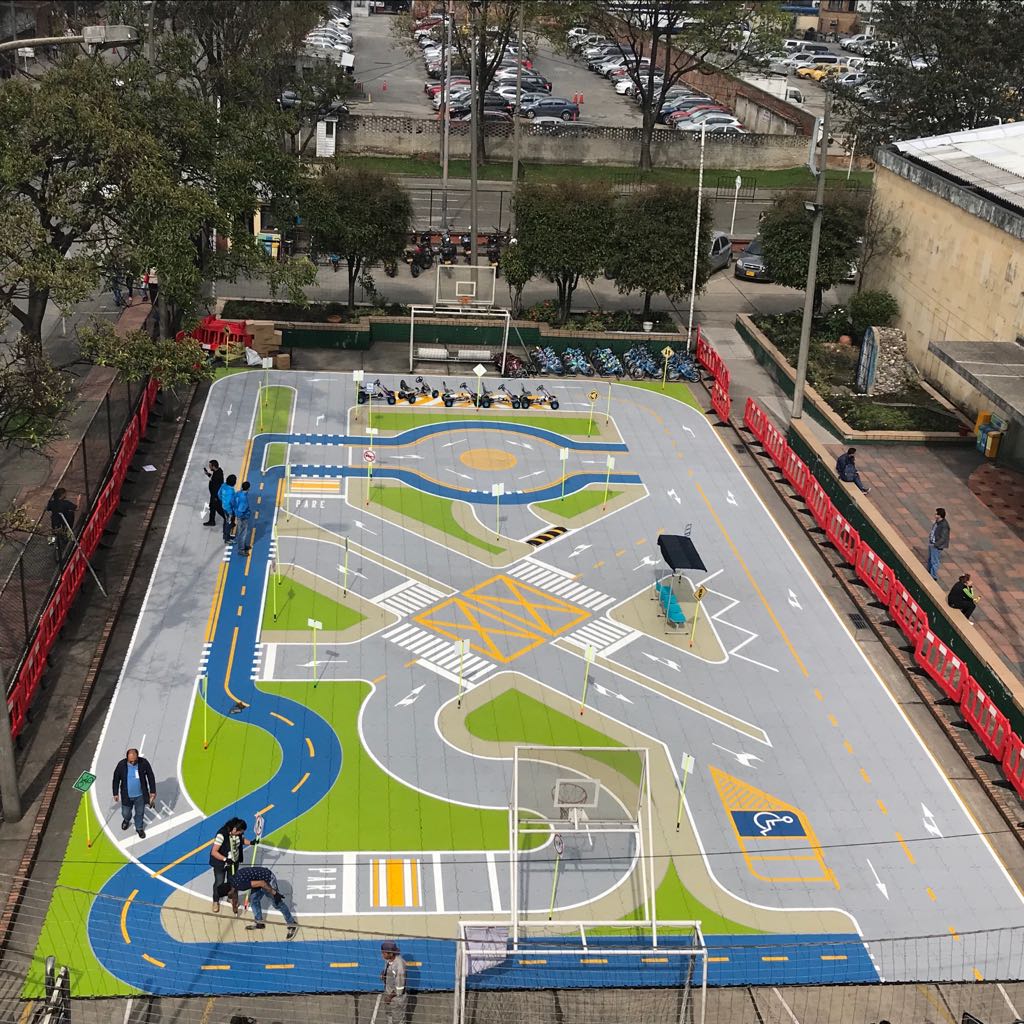 - © Bogotá Programa De Buenas Práctica
- © Bogotá Programa De Buenas Práctica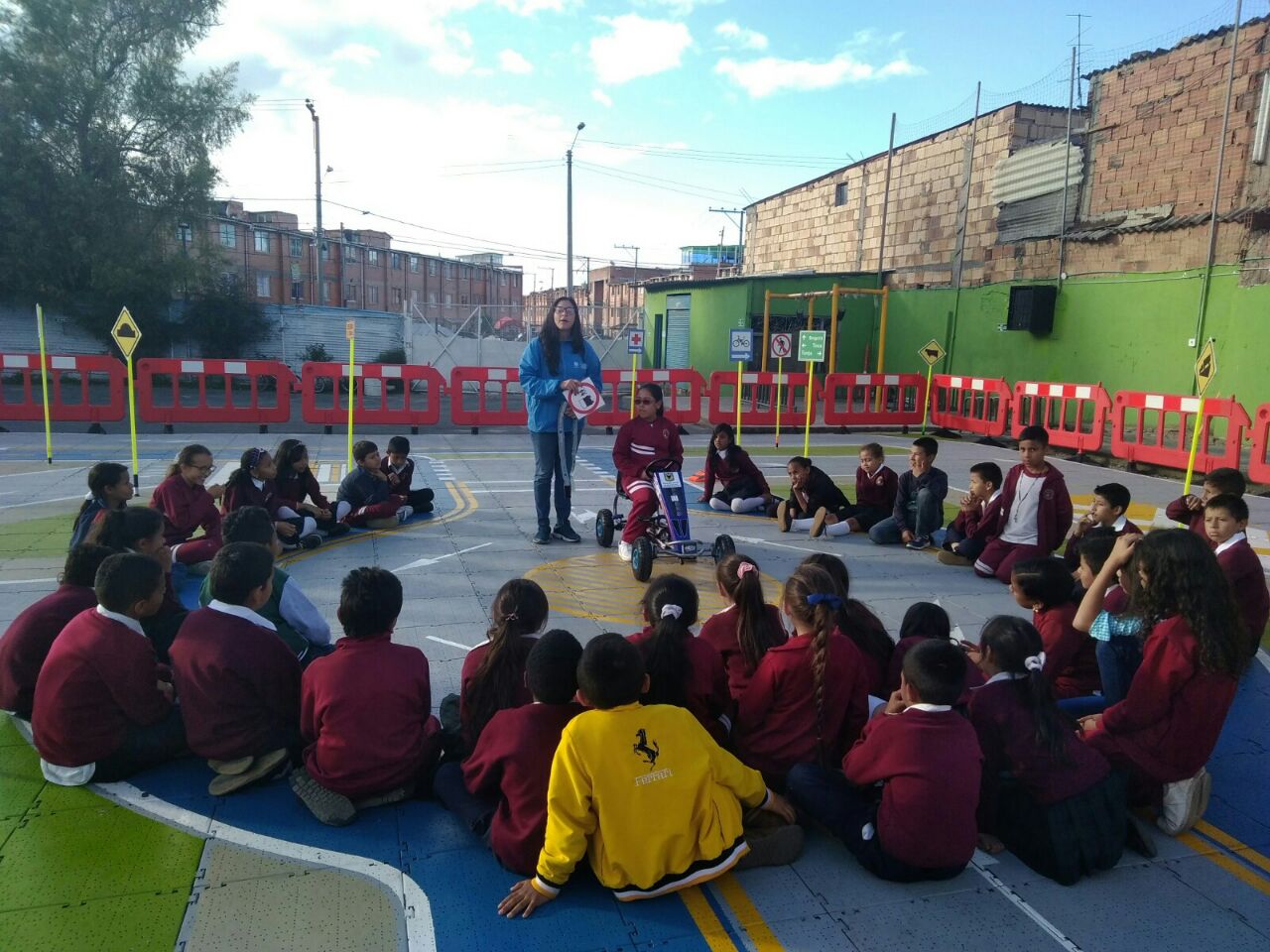 - © Bogotá Programa De Buenas Práctica
- © Bogotá Programa De Buenas Práctica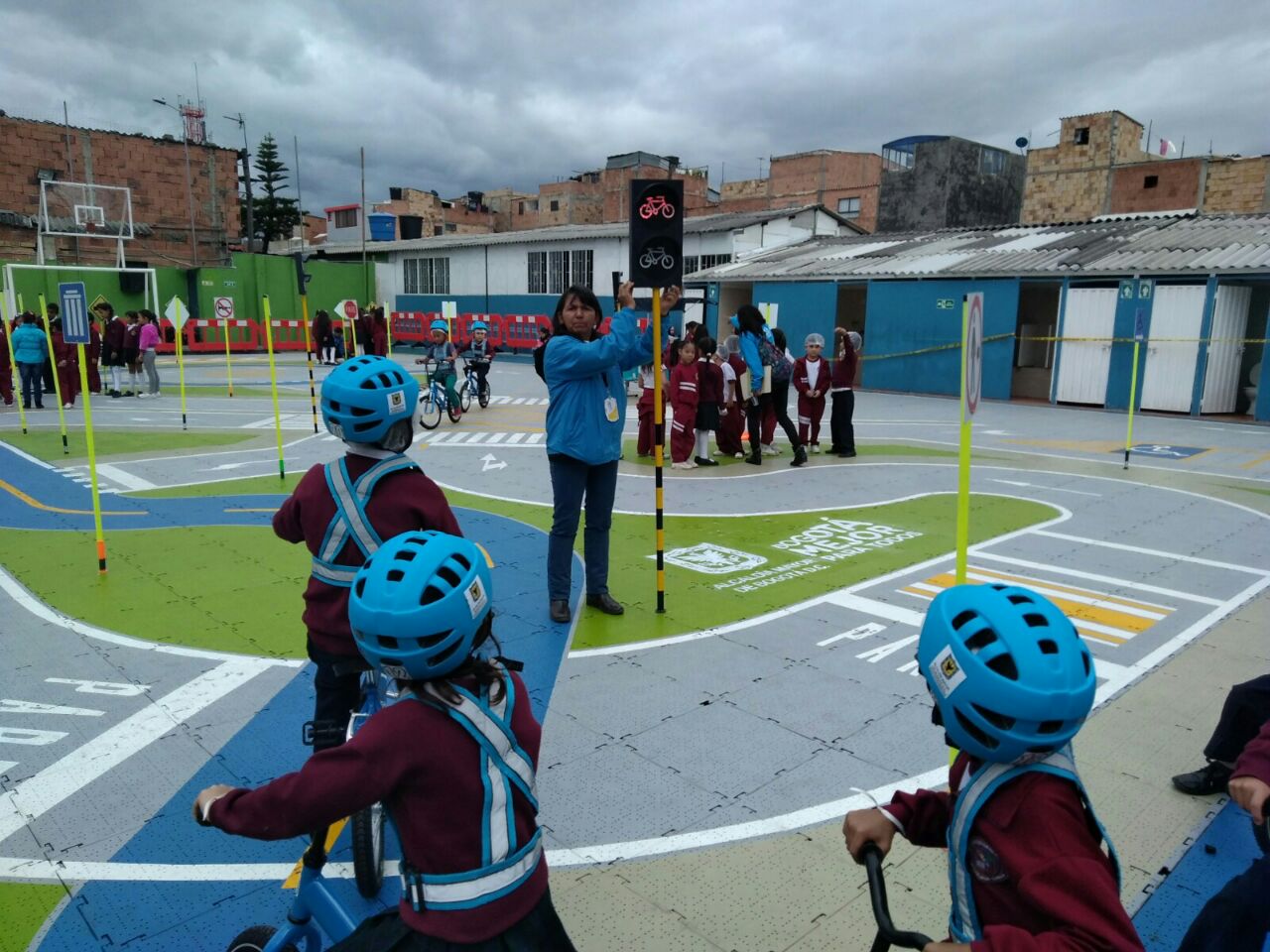 - © Bogotá Programa De Buenas Práctica
- © Bogotá Programa De Buenas Práctica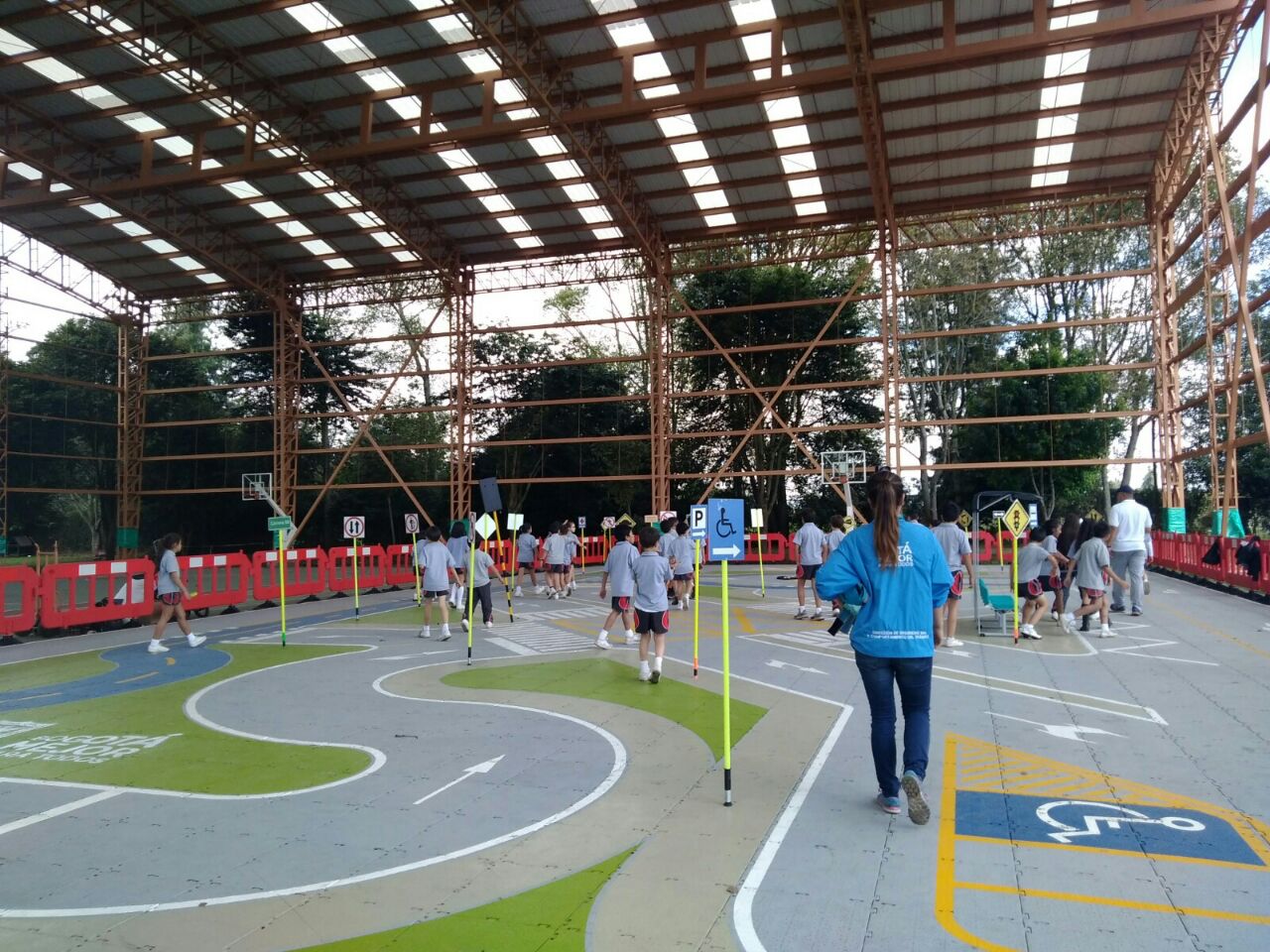 - © Bogotá Programa De Buenas Práctica
- © Bogotá Programa De Buenas Práctica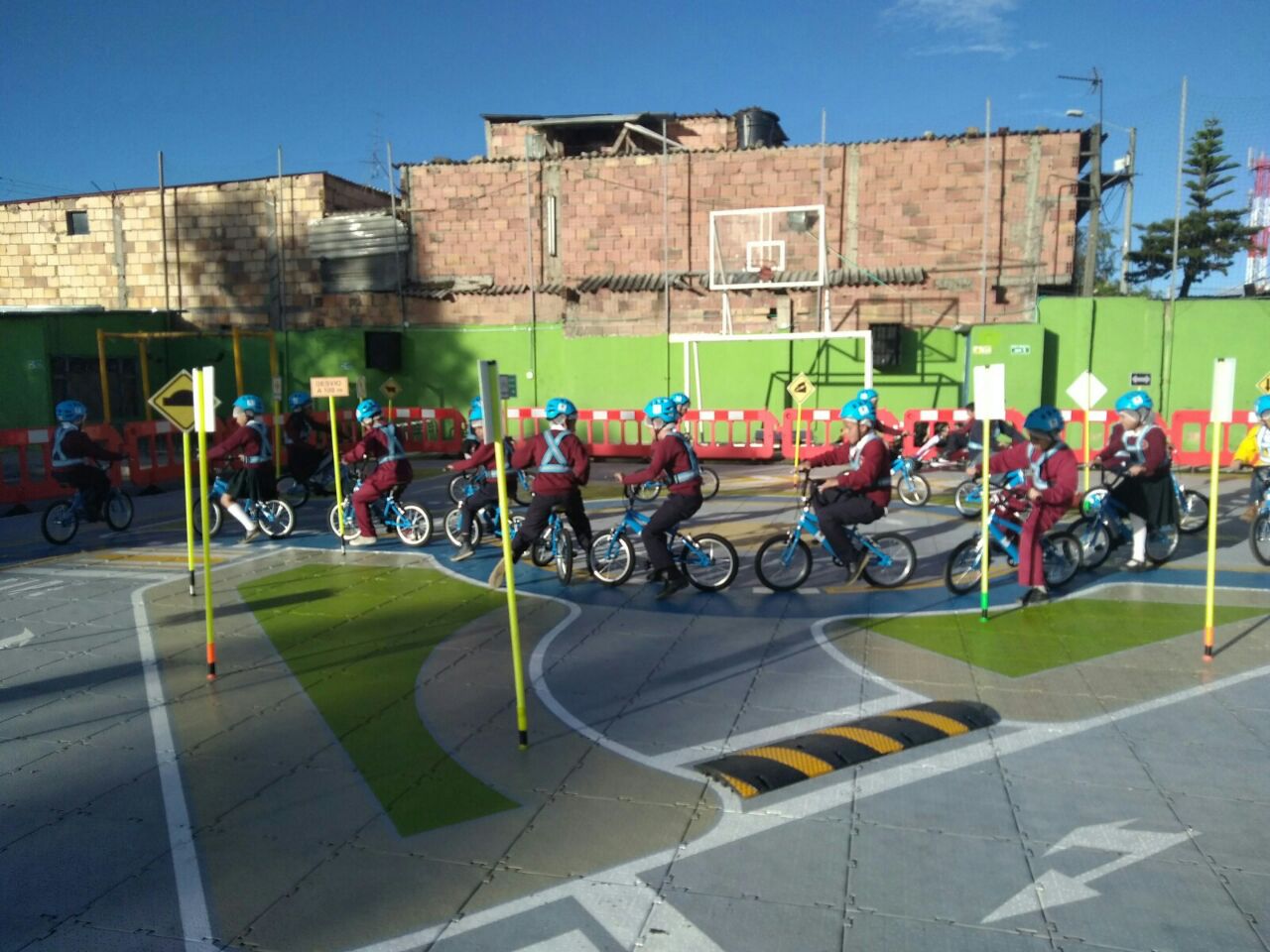 - © Bogotá Programa De Buenas Práctica
- © Bogotá Programa De Buenas Práctica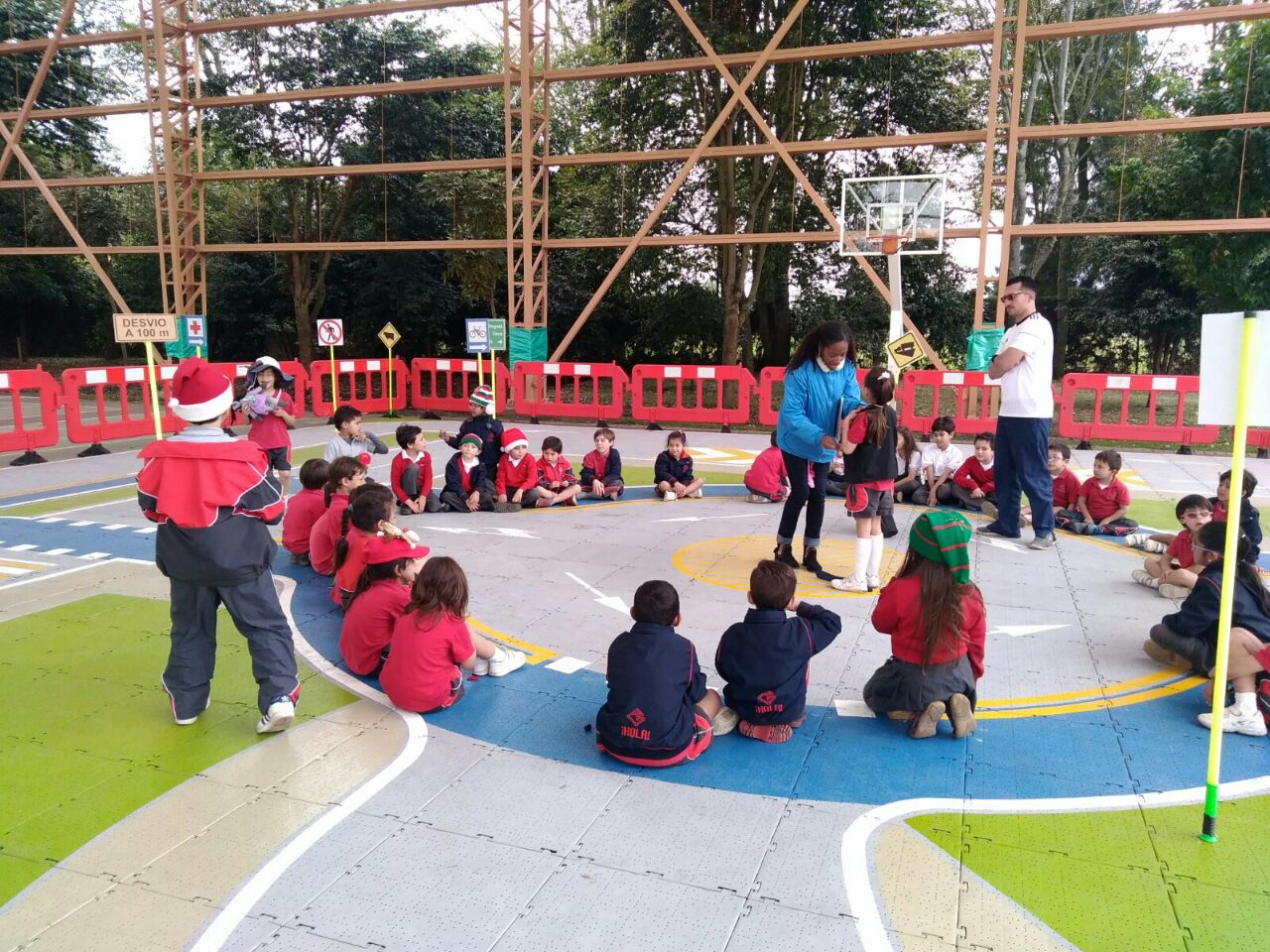 - © Bogotá Programa De Buenas Práctica
- © Bogotá Programa De Buenas Práctica
City
Bogotá
Main actors
City Government, NGO / Philanthropy, Community / Citizen Group
Project area
Metropolitan Area
Duration
Ongoing since 2017
A sustainable mobility program for children.
The Children First program includes multiple projects that promote safe, active and educational mobility for children and young people in Bogota. Through an interdisciplinary team, initiatives have been developed that involve interventions in road infrastructure and control, as well as the promotion of good transport habits and citizen engagement. Across all interventions, collaborative work is carried out with the community, to identify problems, develop solutions and implement change.
In 2015, the Bloomberg Philanthropies Foundation in New York chose Bogotá as one of the 10 cities to benefit from the Global Road Safety Initiative, which aims to "reduce road traffic deaths and injuries. As part of this initiative, the Colombian capital received technical assistance from expert road safety organizations, training for traffic officers, support to create high-impact media campaigns, and support from highly qualified personnel to carry out road safety initiatives.
In 2016, the Mayor's Office of Bogotá, as the head of the Department of Transportation, implemented the Vision Zero road safety policy, which postulates that "no death in transit is acceptable, all are avoidable. This standard has been implemented by countries such as Sweden, Denmark, the United States and Brazil.
In 2017, the City of Bogotá received the prestigious Mayors Challenge award from Bloomberg Philanthropies to fund the Children First Program.
The main initiatives of this global strategy are:
School Zones
The School Zones program seeks to improve school environments through two actions:
- Priority is given to the implementation of signposting schemes around educational institutions. As of 31 March 2019, the district administration has implemented 2,695 new school zones.
- Traffic pacification schemes are developed with innovative infrastructure designs that prioritize vulnerable road users (pedestrians, cyclists and motorcyclists) in school zones through comprehensive interventions. School areas where road accidents have occurred are identified and with community support, critical points and high-risk behaviours are analysed, pilot tests are generated, and physical interventions are consolidated in the public space. The School Zones program also promotes safe speeds of 30 Km/h in school environments, benefiting educational communities, inhabitants and pedestrians.
Mobiparque
The Mobiparque encourages, through play, a relationship of trust and appreciation for the bicycle, showing it as a friendly and healthy mode of transport. Two workshops have been developed: Semilleros de la Bici (Bike Seedbeds), aimed at children from 3 to 6 years, that seeks to introduce a culture of prevention, respect and self-care, and Segurito Voy (Safely I Go), to encourage children between 7 and 11 years to learn road safety in a playful way, seeking to become promoters and defenders of safe and sustainable mobility.
Centipede - Safe Paths & School Lane
1. Safe Paths
The project was initially implemented in the district of Suba, which has 18 schools (public and private) and more than 14,000 children going to and from school every day. All routes were devised in workshops with the heads of families who provided input to how each route should be traced. In addition, on each route, an inspection by technicians from the Department of has been made to find out which are the dangerous crossings and the type of intervention that must be carried out in order for the route to be truly safe.
In Bogotá, the routes are associated with different schools and are designed taking into account three important factors:
1) Usability: looking for the optimal roads in terms of safety and distance between school and home.
2 Road safety: lower traffic speed, accident studies, pedestrian infrastructure such as platforms and safe crossings.
3) Personal safety: places where the community feels comfortable walking at any time of the day.
In addition, each road has meeting points where the community gathers to wait, from one to five minutes, for the Centipede ‘walking caravans. With the support of the school community and parents, these walks allow students to reach their place of study in a safe and fun way. Networks are created between families and official attendants so that they can walk with the students along the routes.
2. School Lane
The School Lane is a pilot project where a priority lane is created for vehicles that transport students to their schools located in the northern edge of the city between 6:00 and 8:30 am. This program is intended to benefit nearly 50,000 students covering approximately 7 kilometres.
Bike School
This project is aimed at young people attending public schools.
The project encourages the use of bicycles through the formation of ‘caravans’ that accompany the students on their journey to and from school. The caravans are led by Bike school guides comprised of high school graduates, university students and professionals with a pedagogical vocation who have been trained in road safety. The project is led by the Department of Transportation and Education along with support from the educational institutions and the authorities and citizens of each of Bogota’s districts.
The Bike School is divided into two phases: the first phase trains students on the use of bicycles, appropriate road behaviour, traffic rules and road safety components. The second phase evaluates the school environment and designs a safe route for students to go to and from school accompanied by a guide. To start the caravans, the District provided bicycles and safety kits to the students who joined the program.
Due to its initial success, it was decided to extend the program by creating "cycle-expeditions", where students pedal in ‘caravans’ to parks, museums, places of interest, public squares and libraries of the city. Throughout 2018 there were approximately 450 cycle-expeditions
The lead agency for the project is the Department of Transportation (SDM) and is managed by the Mayor’s office at the City of Bogota.
The Children First Program has made significant achievements not only in reducing child casualty rates on the roads in Bogota but also in improving other aspects of the participants daily lives. These include the children's degree of attention, their level of activity, their state of mind and their relationships with their family and peers.
The achievements of the program are:
School Zones – improving schools’ environment
- 2,695 school zones implemented.
- Comprehensive traffic pacification interventions in high student density areas.
- Implementation of innovative designs.
- Reduced road risk for vulnerable actors.
- Greater compliance with signalled speeds.
Moviparque – bicycle workshops
- 13,500 participating students between 2017 and the first quarter of 2019.
Centipede – school lanes and safe paths to school
- 10 schools and 413 children participating in first year of implementation.
Bike School – cycle caravans
- 5,000 security kits delivered.
- 4,443 special bicycles for children purchased.
- 222 guides hired per year.
- Implemented in 12 of the 20 districts of Bogota.
The main challenges for the programme have been identified as follows:
- Identify strategic allies for the program, including schools and parents.
- Encourage community attendance at participatory workshops.
- Be attentive to changes, so that the project becomes resilient and adjusts to the real needs of each moment.
- Raise awareness in the community of the need for safer and more sustainable mobility. Manage shorter measurement and research times.
- Improve inter-institutional articulation, especially by strengthening the Zero Vision policy.
- Improve guidelines and strategies to strengthen the systems of follow-up, monitoring and evaluation.
The success of the program is due to the attention given to the real needs of the students and the commitment to ensure their daily commute to and from school is a safe, pleasant, healthy and educational journey.
Below are the innovative, sustainable, replicable, and effective elements of this program and its strategies.
School Zones
Through a re-engineering process, the School Zones designs new road configurations that prioritize vulnerable actors. The implementation and signposting of school environments increases risk identification by all road actors. Additionally, the presence of these devices throughout the city generates ownership and compliance by citizens.
School Zones is replicable, since the characteristics of Bogotá's road infrastructure are similar to those of other cities in the region and Latin American countries. Having already gained experience in the implementation of these initiatives, they can be transmitted and emulated.
Moviparque - bicycle workshops
Moviparque pedagogically approaches the school population through the Semilleros de la Bici (Bike Seedbeds) and Segurito Voy (Safely I Go) workshops. Early intervention among the students creates a replicating effect within their social circle. Its pedagogical process and culture could be replicated to any other student population.
Centipede - school lanes and safe paths to school
Centipede captures children's needs by involving them in the process and thus obtaining a user-centred design. Its main objective is to increase children's perception of safety in relation to the route, to maintain group cohesion and to entertain children along the route.
The games have been designed in order to involve all the skills and play interests of all participating children. It can be replicated by designing games that involve the skills and play interests of all participating children.
Bike Schools – cycle caravans
The program seeks to generate within the community, an appropriation of the bicycle as a means of sustainable and safe transport. It represents a real alternative for students who have to make long journeys to and from school. It is replicable, since during its implementation the inter-institutional, community and student’s needs have been identified in order to guarantee that the program effectively meets the requirements of all actors.
External links / documents
On Map
The Map will be displayed after accepting cookie policy
